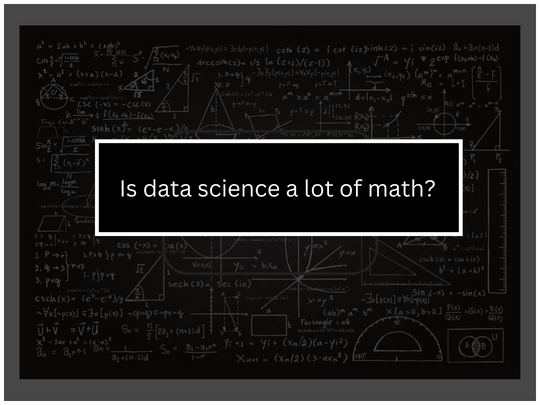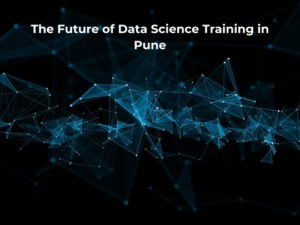Mathematics is an essential part of data science. Starting a career in data science requires a strong mathematical background in different fields. The qualification you need for a job in data science depends on what area you are interested in. You may need an MA, BA, or Ph.D. degree to be hired in some organizations. A large part of it is the capacity to translate data science skills to scenarios in the real world. A big part of it concerns how well you understand mathematics.
A career in data science requires mathematical studies because getting insight from data, doing analyses, and machine learning algorithms all need math to complete and understand. Math is not the only educational requirement in data science. You need to understand different challenges in business and be capable of translating them mathematically.
What is your specialty? Is it a data architect, business intelligence developer, machine learning engineer, data scientist, or any other specialist in the industry? It is normal not to know what path to take initially. However, you should look at the mathematical requirement and how they are used in your career path. This is the only way to know your interest and skills so that you can pick the right mathematical education to pursue.
Becoming a Data Scientist is possible now with the 360DigiTMG best data science training institutes in Pune. Enroll today.
Types of Math in data science
There are different types of math needed in data science. Knowing them allows you to prepare better for a career in this area. If you are not in a related field, consider taking a math course and getting conversant with some of the topics. They include the following:
- Linear algebra
One of the most important components of data science is linear algebra equations. It is applied in machine learning. These can be used to observe and examine data sets. Linear algebra in machine learning supports vector classification, covariance matrices, regularization, and loss functions.
- Calculus
Multivariate calculus is important for algorithm training and gradient descent. In this case, you must study quadratic approximations, divergence, curvature, and derivatives.
- Statistics
This is a big part of machine learning, specifically with classifications. This includes discrimination analysis and logistic regression. Distributions and hypothesis testing also fall under statistics.
- Probability
This is part of hypothesis distribution and testing. Probability density function and Gaussian distribution is used.
These are some of the important math types used in data science. Having a good grasp of these is important to thrive in this career path.
Other math types
Many other types of mathematics can help you in data science, especially for problem-solving. These include the following:
- Discrete math
This is a type of math that handles numbers with great precision. Continuous math deals with functions that can be calculated for different value sets and with any precision degree. Anytime you start doing math on a computer, you engage in discrete mathematics. This is because every number has multiple bits available for representation. Different principles can serve as inspiration and constraints for solving problems.
- Graph theory
There are some problems we can solve through graph theory. Regardless of what you are looking for, such as building a detector system or optimizing one already in place, you can use graph theory. Graph theory is sometimes the better option in some situations.
- Information theory
In data science, information theory is something you will encounter quite a lot. It does not matter what information you are optimizing. Information theory is major in optimizations applied in different data science models.
Mathematics Applications in data science
Regardless of the industry, all businesses need data scientists to assist them in decision-making. By understanding the best way to apply math practically, you can understand exactly why businesses require data scientists and how mathematics helps along the way. Here, we shall look at some of the most practical uses of math in popular machine learning technologies and data science and how leading organizations use them.
NLP/natural language processing
In NLP, linear algebra is needed for unsupervised learning techniques and word embedding. Predictive analytics and topic modeling are some of the applications. NLP is needed for sentiment analysis, speech recognition, language translation, and chatbots.
Computer Vision
We need linear algebra in computer vision as well. This includes things like image processing and image representation. When you consider computer vision, think of self-driving Tesla cars. Computer vision is needed in other industries, such as agriculture, to help with yield improvement. The healthcare industry can use computer vision to improve diagnosis after illness classification.
Sales and Marketing
Under this category, we need statistics. We can use statistics to test how effective a marketing campaign is. This can be achieved by hypothesis testing. It can be an effective method of understanding the way consumers behave. Using techniques such as survey design or casual effect analysis, you can come up with data regarding how consumers choose one brand over the other. Clustering and predictive modeling can help come up with personalized recommendations.
Regardless of what you target in data science, mathematics is at its core, and you cannot overlook it. Mathematics helps in solving problems and helps with rapid innovation. With math, complex data can be applied effectively to handle business challenges; model performance can also be optimized.
Conclusion
The main thing we have noted in this article is that fundamental mathematical pillars need to be used daily in data science. These are statistics, probability, linear algebra, and calculus. Each type of math has an area that it supports, and it cannot be ignored. However, being a data scientist is not limited to learning mathematics divisions. However, mathematical knowledge is a major part of determining how well a data scientist advances in his career. Mathematics helps us to understand data and draw conclusions. This is an important thing in decision-making. When you choose to enter the data science world, don’t settle for mathematics fundamentals only. As you progress, make sure you work on the mathematical toolbox. This means you grow in the job and have a better chance for better data science jobs.
Browse Other Courses
- Artificial Intelligence Course in Pune
- Business Analytics Course in Pune
- Cloud Computing Course in pune
- Cyber Security Course in Pune
- Data Analytics Course in Pune
- Digital Marketing Course in pune
- Ethical Hacking Course in Pune
- IoT Certification Course Training in Pune
- Machine Learning Course in Pune
- PMP® Certificate Course in Pune
- Python Course in Pune
- Tableau Course in Pune
Navigate to Address:
360DigiTMG – Data Analytics, Data Science Course Training in Pune
No. 408, 4th Floor Saarrthi Success Square, near Maharshi Karve Statue, opp. Hotel Sheetal, Kothrud, Pune, Maharashtra 411038
089995 92875
Get Directions: Data Science Training




